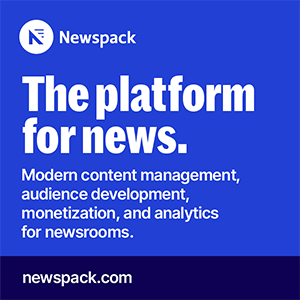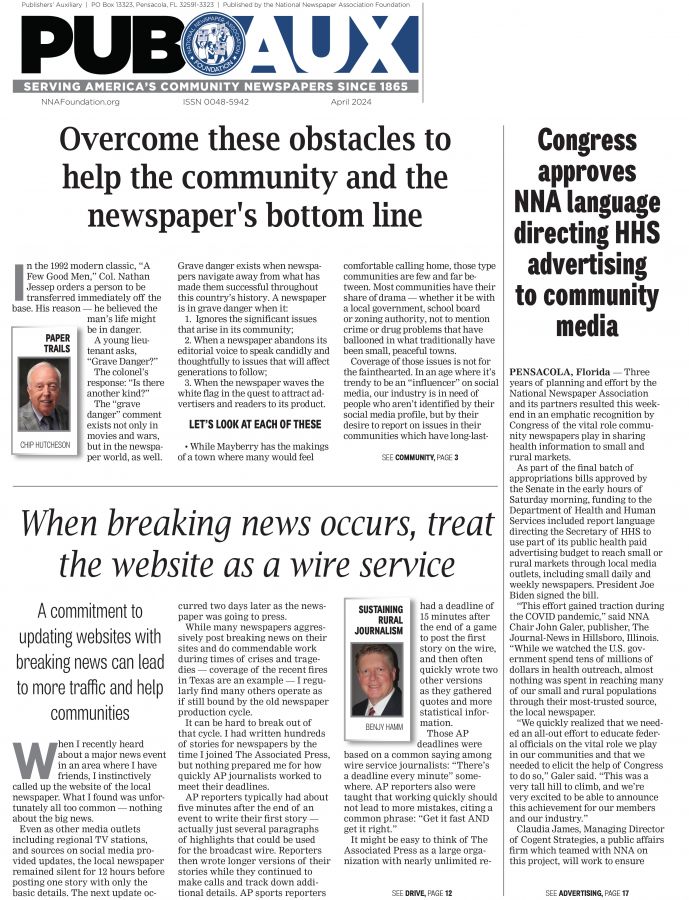Premium increases expected for group health plans
Jul 8, 2014
Self-funding emerges as a viable option
for more publications
By Stephen Wyss
Managing Director | Affinity Group Underwriters
Many recent reports, including analyses from the American Academy of Actuaries, Aetna, and the Congressional Budget Office, all point in the same direction. Premiums for group health insurance are going up significantly this year.
One reason for the sticker shock to come in 2014 is that many employers took advantage of “early renewal” offers from their insurers late last year and locked in rates into 2014. The full effect of the increased fees, taxes and benefit mandates of the Affordable Care Act will, therefore, only become clear at an employer’s next renewal.
Smaller publications (those with fewer than 50 full-time equivalent employees) are not required to provide health insurance under the law so they have a viable alternative. They can cancel their group insurance plan and help their employees obtain individual coverage through the new Marketplaces “Exchanges.”
Larger organizations do not have that luxury. Although enforcement of the “Employer Shared Responsibility Payment,” the official name of the tax penalty large employers (50-plus) face for not offering qualifying health insurance under the Affordable Care Act, has been delayed until 2015, the requirement to offer coverage has not been repealed and the penalty will kick in next year.
There are many considerations and different strategies available for medium-sized publications (50–500 employees) as they decide how to handle their obligations under the law and provide health insurance coverage for their employees without bankrupting the business. Health insurance is often the second-largest item in an employer’s budget, so even a small percentage reduction in costs can be beneficial to a company’s bottom line.
Because of the ACA, an increasingly attractive option for many medium-sized companies is partial self-funding. Once exclusively a strategy for businesses with thousands of employees, new self-funding plans and techniques are making it possible for smaller companies to enjoy similar cost savings. And, adding to the allure of self-funding now are the twin prospects of avoiding the additional costs arising from the new taxes and fees imposed by the ACA and taking advantage of the exemption self-funded plans enjoy from many of the mandates and benefit requirements of the law.
For medium-sized employers who do self-fund, the icing on the cake is participation in a group captive. A “captive” is a specialty reinsurance company that enables a group of self-funded employers to band together to share risk and collaborate on best practices to reduce claims and costs. In short, the captive helps its members enjoy the advantages of scale and scope that large companies have when self-funding.
Self-funding with membership in a captive is not the right solution for all medium-sized businesses, however. Among the characteristics of companies that successfully self-fund are:
• An employee population with average or better-than-average health history.
• Financial stability.
• Tolerance for accepting limited financial risk.
• A longer term financial horizon and commitment to self-funding on a multi-year basis.
• Willingness to implement robust health management initiatives.
• Involved, active, forward-thinking management.
• A culture that values communication with employees.
For most medium-sized employers, a traditional fully insured plan is the path of least resistance. It is the easiest—but often the most expensive—choice. Pay the premium and forget about insurance until the next renewal. Self-funding requires much more involvement on the part of management. The potential financial rewards, however, are leading more and more employers to consider the strategy and the implementation of the ACA is accelerating that trend.
Stephen Wyss, managing director of Affinity Group Underwriters, a benefits consulting firm specializing in lesser-known strategies to help businesses profit from the Affordable Care Act and an NNA Allied Member since 2001. He can be reached at swyss@agu.net, 804-273-9797.







